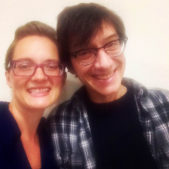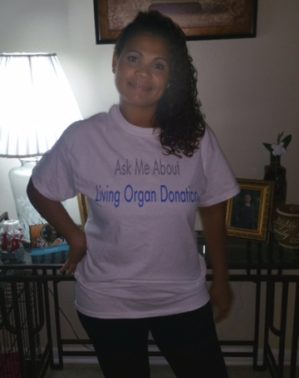Our Mission
Our primary mission is to help living organ donors overcome the financial burdens associated with organ donation, but we will also provide assistance in whatever way we can to help donors make informed and safe decisions. We neither encourage nor discourage donation.
Mission
Our primary mission is to help living organ donors overcome the financial burdens associated with organ donation, but we will also provide assistance in whatever way we can to help donors make informed and safe decisions. We neither encourage nor discourage donation.
We will work to protect the rights of living organ donors. If they are sure they want to donate, we help them achieve their goal whether saving the life of a loved-one or one or more strangers. We are here to help kidney donors, liver donors, and every kind of living organ donor. Listening to donors, finding out what they need, and helping them get it, is what we are all about.
We spend most of our time raising money to help meet living organ donors financial needs, such as lost wages for them and their caregiver while the donor is recovering from surgery. We do provide direct grants, but we also do individual fundraising campaigns when our general funds are low. We always start by making sure donors are aware and take advantage of all the potential resources for assistance that are available, such as federal and state paid leave laws, federal and state assistance programs for donors, and other private charities. And then we help them build a package of assistance from available sources, including us, that maximizes what they are legally allowed to get under the National Organ Transplant Act.
As new voting members of UNOS and elsewhere when opportunities present themselves, we work for laws, regulations, and policies, that protect living organ donors. For example, coverage of lost wages; more research on the long-term effects of organ donation; and to prevent discrimination in both health and life insurance policies.
The ALODF wants to stop the cycle of abandonment felt by many living organ donors. Donors are helped by some government and private organizations to get them to and from the transplant center but often feel forgotten after they’ve donated. We help donors with support groups and living organ donor networks in addition to our financial grants. We feel strongly that society’s obligations to living organ donors does not end with the transplant.
The ALODF is here to help. We will support donors in their decisions to help save a loved-one or stranger –with financial support, information, support groups, and in-person mentoring by other living organ donors in their community.
We have never turned away an American living organ donor who has come to us for help. If we do not have the financial resources to help a donor outright with a legal and verifiable donation related expense or unpaid leave, we will offer to help the donor with fundraising to pay those expenses.
After my application was done. I immediately got an answer back from them and in a matter of a couple of weeks I received a check by mail. I was not only genuinely grateful to them for their help, but I was also able to pay all my bills and rest like I was supposed to. I can’t believe how wonderful they are and kept in touch with me threw out the whole process.
Online Living Organ Donor Support and Information
We have a donor and people considering donation only support group on Facebook that is growing larger almost daily. Share your concerns and experiences. Ask questions of those who have been there!
What We Do
1. Provide financial benefits and support services to donors to the fullest extent permissible under U.S. law. Such services, funds permitting, will include travel, lodging, lost wages and other forms of support needed for donors and their caregivers to help reduce the burden of living donation both before and after donation. We help all donors on a first come, first serve basis, have no financial criteria for giving assistance, and accept applications for assistance both before and after donation. Since there are some other sources for travel, lodging, and food while traveling and at the transplant center (NLDAC), we most often help with lost wages for both the donor and his or her caregiver. Although we have also helped donors who don’t qualify for NLDAC or other programs for one reason or another with travel, lodging and other donation related expenses.
“I cannot express enough gratitude to the ADOLF. Not only did give us much needed financial help, they also helped make the entire donation process easier.”
2. Provide information to help donors make informed decisions, including the most recent articles and literature on the risks and benefits of living organ donation.
3. Provide resources, state by state, so donors can look up what services and benefits are available to them where they live or in the region where they are considering donating (support groups, local charities, and information on hospital and government programs that provide financial assistance to donors).
4. Provide a closed online support group for only living organ donors and those serious about becoming living organ donors.
5. Provide a network of in-person mentors for living organ donors. Our main avenue for this is our regional directors who advocate locally for the donors in their region.
NOTE: Financial benefits (charity grants to donors) are distributed based on a first-come-first serve basis — for totally completed applications. Click her for our application.The number of donors we can help is directly dependent on the amount of financial assistance we receive.

KRISTEN & KEITH
I just had to write you a note to say how grateful I am for your [the ALODF team’s] help. Without financial assistance it would not have been feasible for me to donate. Thank you for all your hard work!
Vision
We would like to see a world where the decision whether or not to help save a fellow American by being a living organ donor isn’t a financial decision. To accomplish this vision, we support the Center for Ethical Solution’s Save Lives, Save Money Now! initiative to try to change U.S. law to help living organ donors with their expenses. In the meantime, we at the American Living Organ Donor Fund want to do whatever we can under current law to limit the financial and social burdens living organ donors face. In 2017 the ALODF became a voting member of UNOS and is now also active in that organization as a living organ donor rights advocate.
History
The American Living Organ Donor Fund (ALODF) was started by Sigrid Fry-Revere and Mike Mittelman in 2014 as a project of the Center for Ethical Solutions. Sigrid asked Mike to help her create a charity after her efforts to lobby Congress for change was making too little progress too slowly. Sigrid had tried to become a living donor, but ran into challenges at the health system level based on the transplant center’s misunderstanding of the law with respect to compensating donors for their expenses and lost wages. Michael wanted to start an organization in his mother’s memory. She donated her kidney to him in 2001, and she passed away a few years later.
They started the American Living Organ Donor Fund, a GuideStar Platinum-rated 501(c)(3) with mission to make living organ donors “whole” by ensuring their rights are protected and by ensuring the procedure is cost-neutral. The Living Organ Donor Fund is need-blind and makes direct grants to living organ donors both pre and post-donation to cover donation related expenses (including but not limited to lost wages, travel, lodging, child care, caregiver, etc.). We are here to serve all kinds of living organ donors – kidney, bone marrow, liver, and lung. Living organ donors on average spend $5,000 out-of-pocket, but sometimes costs go as high as $20,000. Only 8% of Americans can afford to donate an organ without using their savings or going into debt. In less than 3 years we have helped make more than 100 living organ donation transplants possible. Living organ donors are doing enough by donating an organ, so they and their families should not also have to suffer financially. Being a living donor should be cost neutral.


